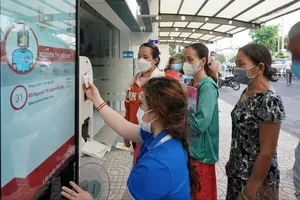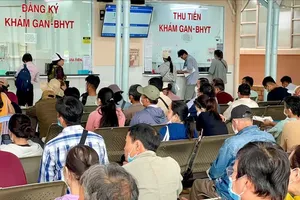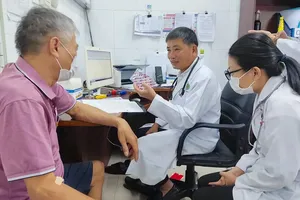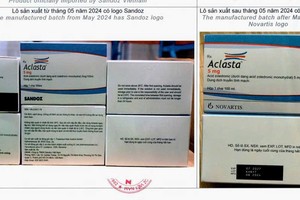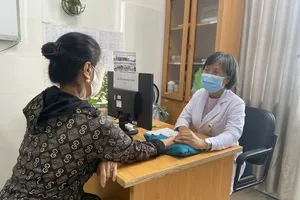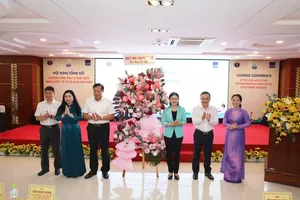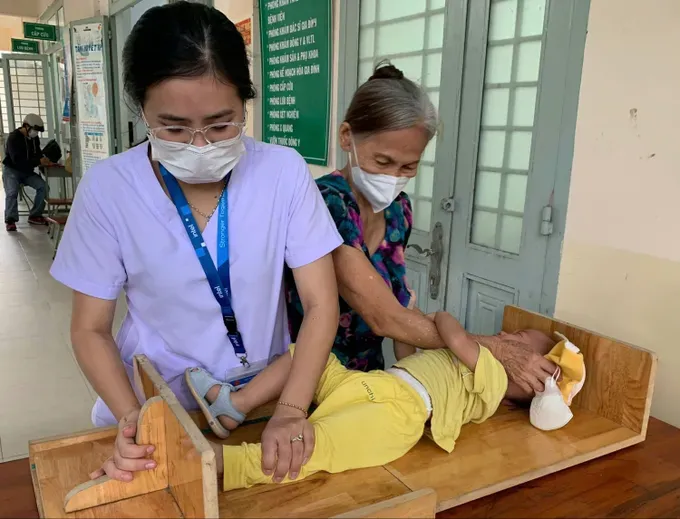
In early September 2025, when Nguyen Thi Ly from An Hoi Tay Ward of HCMC brought her 9-month-old daughter to the local health clinic for a routine measles shot, she was pleasantly surprised. The visit included a thorough, regularly scheduled health screening.
“The doctor spent a good 30 minutes asking about our medical history, the baby’s nutrition, and checking her reflexes and motor skills”, the 33-year-old mother shared. “When I mentioned my daughter has a protein allergy and a history of anaphylactic shock, the doctor gave me detailed advice on a safe diet. She also walked me through the specific developmental milestones to watch for and pointed out signs that could suggest a risk of motor or mental delays.”
This kind of proactive, free care stands in stark contrast to the alternative. As another HCMC resident, Nguyen Thi Thuy Anh, pointed out, a single general check-up for her child at a private hospital can cost around VND3 million (US$120), with a psychological assessment running an additional VND500,000 ($20).
“It would be a huge relief if our children could get these check-ups for free at the local clinics”, Thuy Anh expressed. “It lessens the financial burden on families and ensures our kids get more attentive care, catching any potential health issues early.”
According to Tran Hoang Ha, MD MMed, Deputy Head of the An Hoi Tay Ward Health Clinic, these screenings for toddlers are now a regular fixture, held every Tuesday during vaccination hours.
Each child receives a multi-specialty examination that assesses their physical, mental, and motor development to spot any abnormalities, congenital conditions, or developmental delays. For cases requiring deeper analysis, children are referred to specialized pediatric hospitals. A key part of the program is the autism risk screening, which is conducted for all children between 18 and 23 months.
“This program for our youngest residents runs in parallel with health screenings for the elderly”, he added. “Both are incredibly vulnerable populations that require special attention. Our goal is to identify risks early, intervene effectively, and ease the financial strain on families.”
This nationwide initiative, mandated by the Ministry of Health, has been rolling out since 2024. In HCMC, the HCMC Center for Disease Control (HCDC) hit the ground running, collaborating with major institutions like Children’s Hospital 1, Children’s Hospital 2, and the City Children’s Hospital to train primary care staff. The overarching objective is to establish a health record for every child and ensure they receive at least one comprehensive check-up per year.
The numbers show the program is already having an impact. Nguyen Ngoc Thuy Duong, Level-I Specialist, Deputy Director of the HCDC, reported that in 2024, the program screened 58,429 children, with 598 cases flagged for further evaluation at a higher-level facility.
In the first half of 2025, another 23,498 children were examined, resulting in 143 cases being monitored or referred. The plan for 2026 is to expand the program’s reach, guaranteeing every child in the city gets their annual check-up.
However, the program is not without its hurdles. Nguyen Thi Kim Anh, Level-II Specialist of Children’s Hospital 2, who has supervised the program in the field, observed that turnout can be low and outreach to parents is still limited.
A significant challenge is that most doctors at local health stations are not pediatric specialists, which can limit their ability to spot subtle abnormalities. “Alongside raising parental awareness”, she advised, “the health sector must continuously invest in upgrading the professional and communication skills of its frontline staff to build public trust.”
Truong Huu Khanh, MD, Vice Chairman of the HCMC Infectious Diseases Association, reiterated the program’s core purpose: detecting latent conditions.
“The primary goal here is to catch things like birth defects, congenital heart disease, or early signs of autism and developmental delays”, he said. This requires well-trained, competent doctors who can perform the necessary tests thoroughly, not just superficially. In addition, periodic health check-ups for children also help to improve parents’ knowledge in caring for and nurturing children.
Investment in nation’s health
This initiative is part of a broader, fundamental shift in Vietnam’s national health strategy. The Party and State have consistently prioritized public health, a commitment recently underscored by the Politburo’s landmark Resolution No. 72-NQ/TW.
This resolution signals a move away from a treatment-focused model to one centered on prevention and holistic well-being, encompassing physical, mental, and nutritional health. It’s a strategic pivot that aligns with global trends and addresses Vietnam’s modern challenges, including emerging diseases and an aging population.
The resolution champions breakthrough solutions, namely bolstering primary and preventive healthcare, innovating health financing for equitable access, and accelerating digital transformation. These measures are designed to build a foundation for a “Healthy Vietnam by 2030, with a vision to 2045”.
Ultimately, investing in health is investing in the future. A healthy, capable workforce is essential for enhancing national productivity and competitiveness. Realizing this vision, however, depends not just on policy, but on the proactive role of every citizen.
Adopting a scientific lifestyle with a balanced diet, physical activity, and good hygiene is the first line of defense against illness. Forging a habit of physical fitness, especially among the youth, is crucial to building a generation strong enough to carry the nation forward.

